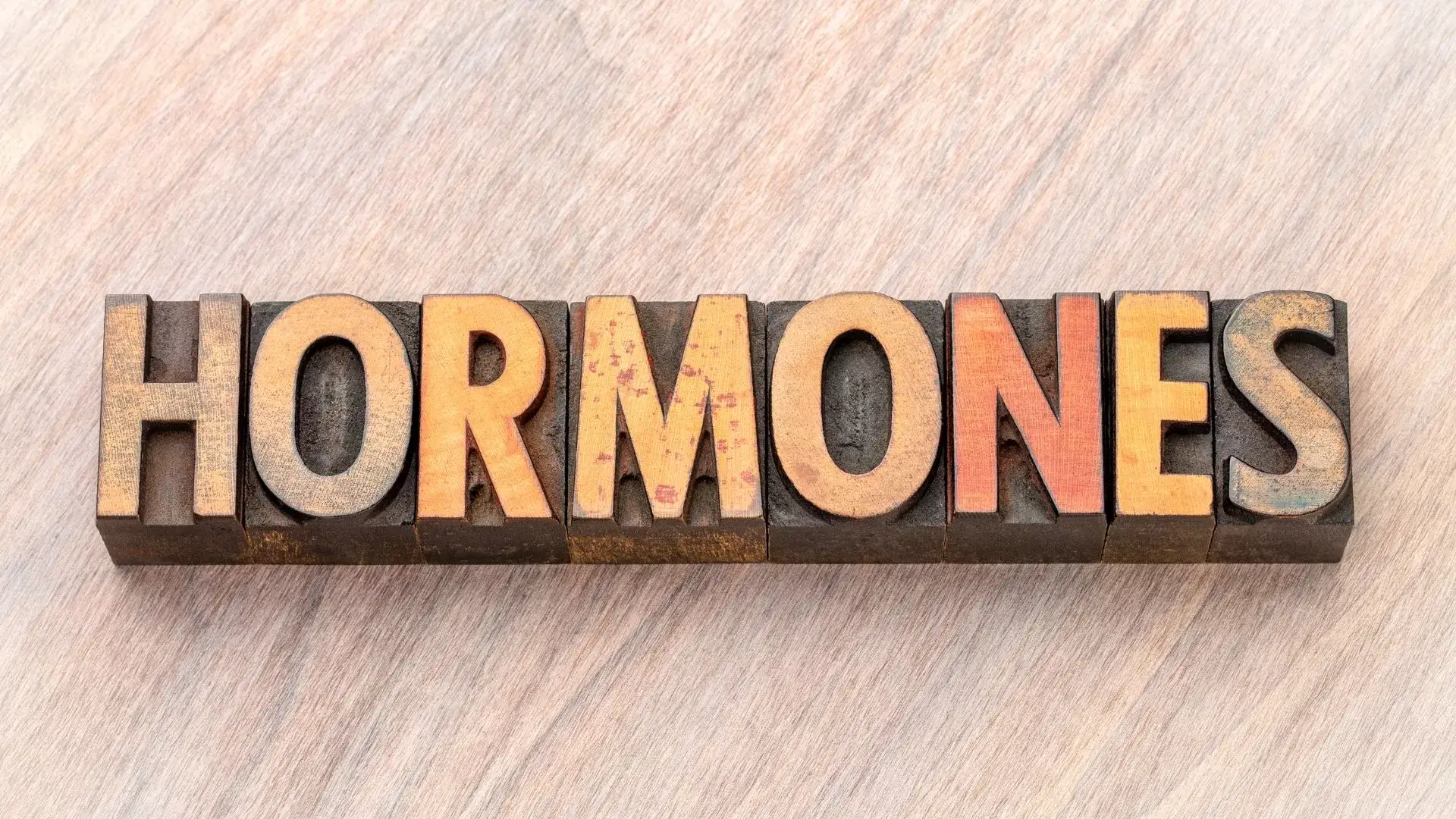As we explore the intricate relationship between hormones and anxiety, it’s clear that fluctuations in our hormonal levels can greatly impact our emotional state. We might notice that certain life stages, like pregnancy or menopause, often coincide with heightened anxiety symptoms. Understanding how hormones like cortisol, estrogen, and thyroid hormones interact with our mental health could provide valuable insights. But what if addressing these hormonal imbalances could be the key to managing anxiety more effectively? Let’s consider the broader implications and potential solutions that might emerge from this understanding.
About Oakville Psychotherapist
In Oakville, our psychotherapist offers personalized support to help individuals navigate the complex relationship between hormones and anxiety. We recognize that each person’s experience is unique, and that’s why we focus on tailored strategies to address specific needs. Located at 243 North Service Rd W #106F, Oakville, ON L6M 3E5, we create a welcoming atmosphere where clients can feel safe to explore their feelings.
Our approach in Oakville Psychotherapist combines evidence-based therapies with an understanding of how hormonal fluctuations can impact mental health. We’ve seen firsthand how factors like stress, lifestyle, and hormonal changes can contribute to anxiety. By working together, we help clients identify triggers and develop coping mechanisms to manage their anxiety effectively.
We also emphasize the importance of ongoing support and communication. Whether it’s through individual sessions or group discussions, we encourage open dialogue about mental health and hormonal influences. If you’re ready to take the first step toward understanding your anxiety, don’t hesitate to reach out. You can contact us at (647) 360-5880. Together, we can work towards a healthier, more balanced life.
How Hormones Contribute to Anxiety
Hormones play an essential role in shaping our mood and can considerably contribute to feelings of anxiety. When we experience stress, our bodies release hormones like cortisol and adrenaline. While these hormones are fundamental for our survival, chronic exposure can lead to heightened anxiety. They prepare us for fight-or-flight responses, but in today’s world, this reaction can become overactive, leading us to feel anxious even in non-threatening situations.
Additionally, hormonal fluctuations during menstrual cycles, pregnancy, or menopause can also influence our mood. For instance, many of us notice increased anxiety or irritability during certain phases of our menstrual cycle due to shifts in estrogen and progesterone levels. This connection underscores how deeply intertwined our hormonal health is with our mental well-being.
Furthermore, thyroid hormones can also play a significant role. An underactive or overactive thyroid can exacerbate anxiety symptoms, making it important to understand our hormonal health. By recognizing these connections, we can take proactive steps to manage our anxiety, whether through lifestyle changes, therapy, or medical intervention. Ultimately, understanding how hormones contribute to our anxiety empowers us to seek appropriate support and find effective coping strategies.

The Role of Hormones in Regulating Our Bodies
Our bodies rely on a complex network of hormones to regulate essential functions like metabolism, growth, and mood. These hormones act as chemical messengers, traveling through our bloodstream to target organs and tissues, influencing everything from our energy levels to our emotional state. For instance, insulin helps us manage blood sugar levels, while thyroid hormones control our metabolism.
When we think about growth, we can’t overlook the role of growth hormone, which is vital during childhood and adolescence. It not only affects physical development but also plays a part in muscle and bone health throughout our lives.
Moreover, hormones like serotonin and dopamine greatly impact our mood and emotional well-being. They help us feel happy, calm, and motivated, making them essential for mental health.
It’s fascinating how these hormones work together, creating a delicate balance that keeps our bodies functioning effectively. When we engage in regular exercise, eat a balanced diet, and manage stress, we can support our hormonal health. In doing so, we promote overall well-being, which enhances our quality of life and helps us navigate daily challenges more efficiently.

Hormonal Imbalances as a Trigger for Anxiety
Hormonal imbalances can greatly trigger anxiety, leaving many of us feeling overwhelmed and on edge. When our hormones fluctuate, whether due to stress, diet, or medical conditions, it can impact our emotional well-being. For instance, low levels of serotonin, often linked to hormonal changes, might lead us to feel more anxious or irritable.
Additionally, conditions like thyroid disorders can considerably affect our mood, making us feel anxious without a clear reason. Women, in particular, may experience anxiety during specific phases of their menstrual cycle due to fluctuating estrogen and progesterone levels. We might notice that our anxiety spikes during these times, complicating our daily lives and relationships.
Furthermore, our adrenal glands play a crucial role in managing stress hormones. When these glands become overactive or underactive, we can experience heightened anxiety symptoms. It’s essential for us to recognize how these hormonal changes are intertwined with our mental health.
Addressing hormonal imbalances through lifestyle changes, medical intervention, or therapy can help reduce anxiety. By understanding this connection, we can take proactive steps toward achieving a more balanced emotional state.

The Connection Between Stress Hormones and Anxiety
Stress hormones like cortisol play a significant role in triggering and exacerbating anxiety, affecting how we respond to daily challenges. When we encounter stress, our bodies release cortisol to prepare us for a fight-or-flight response. While this reaction is vital for survival, chronic stress leads to elevated cortisol levels, which can create a cycle of anxiety that’s hard to break.
We often notice that during particularly stressful periods, our anxiety levels spike. This connection isn’t just coincidental; studies show that consistently high cortisol levels can alter brain function, impairing our ability to manage stress effectively. As a result, we may find ourselves overreacting to situations that wouldn’t normally provoke such a response.
Moreover, prolonged exposure to stress hormones can lead to physical symptoms like increased heart rate and tension, further intensifying our feelings of anxiety. It’s imperative that we recognize this link; understanding how stress hormones impact our mental health empowers us to manage our responses better. By addressing our stress levels through mindfulness, exercise, or therapy, we can help regulate our cortisol levels and reduce anxiety, paving the way for a more balanced emotional state.
The Influence of Thyroid Hormones on Anxiety Levels
Interacting closely with our body’s metabolic processes, thyroid hormones greatly influence anxiety levels and overall emotional well-being. When our thyroid glands produce too much hormone, we often experience symptoms like heightened anxiety, irritability, and restlessness. Conversely, insufficient thyroid hormone production can lead to fatigue, depression, and even increased anxiety.
We’ve noticed that thyroid dysfunction can manifest as anxiety-related symptoms, making it vital to monitor our thyroid health. Conditions like hyperthyroidism and hypothyroidism are known to impact our mental state, often causing us to feel on edge or emotionally drained
Research shows that individuals with thyroid imbalances frequently report anxiety as a significant issue. By maintaining a balanced thyroid hormone level, we can help stabilize our mood and reduce anxiety.
It’s essential for us to recognize the signs of thyroid dysfunction and seek medical advice if we suspect something’s off. Regular check-ups and blood tests can help us keep tabs on our thyroid health. In doing so, we not only address our physical well-being but also support our emotional resilience against anxiety. Understanding this link empowers us to take control of our mental health.
The Impact of Estrogen and Testosterone on Anxiety
In addition to thyroid hormones, both estrogen and testosterone play significant roles in shaping our anxiety levels and emotional health. We understand that estrogen, often associated with female reproductive health, can influence mood and anxiety. Research shows that fluctuations in estrogen levels, particularly during menstrual cycles or menopause, can lead to increased feelings of anxiety. This happens because estrogen impacts neurotransmitters like serotonin and dopamine, which are essential for regulating mood.
On the other hand, testosterone, commonly linked to male health, also has a significant effect on our emotional well-being. Lower levels of testosterone in men have been associated with higher anxiety and depressive symptoms. Notably, studies suggest that ideal testosterone levels can help improve mood and reduce anxiety, regardless of gender.
Seek Help from Our Registered Psychotherapists
When anxiety becomes overwhelming, seeking help from our registered psychotherapists in Oakville can provide the support and guidance we need to navigate our emotions effectively. Each of us experiences anxiety differently, and a professional can help us understand our unique triggers and responses.
Our therapists are trained to explore the intricate relationship between our hormones and anxiety. They can offer insights into how fluctuations in hormones, like estrogen and testosterone, impact our mental health. By identifying these patterns, we can learn to manage our symptoms better.
In therapy, we’ll find a safe space to express our feelings and fears without judgment. Our therapists will equip us with practical coping strategies tailored to our individual needs. Whether it’s through cognitive-behavioral techniques or mindfulness practices, we’ll gain tools to help us face our anxiety head-on.
Additionally, they can guide us in developing a holistic approach that may include lifestyle changes, such as exercise and nutrition, which are pivotal in managing anxiety. By working together, we can create a personalized plan that fosters resilience and emotional well-being, allowing us to reclaim control over our lives.



